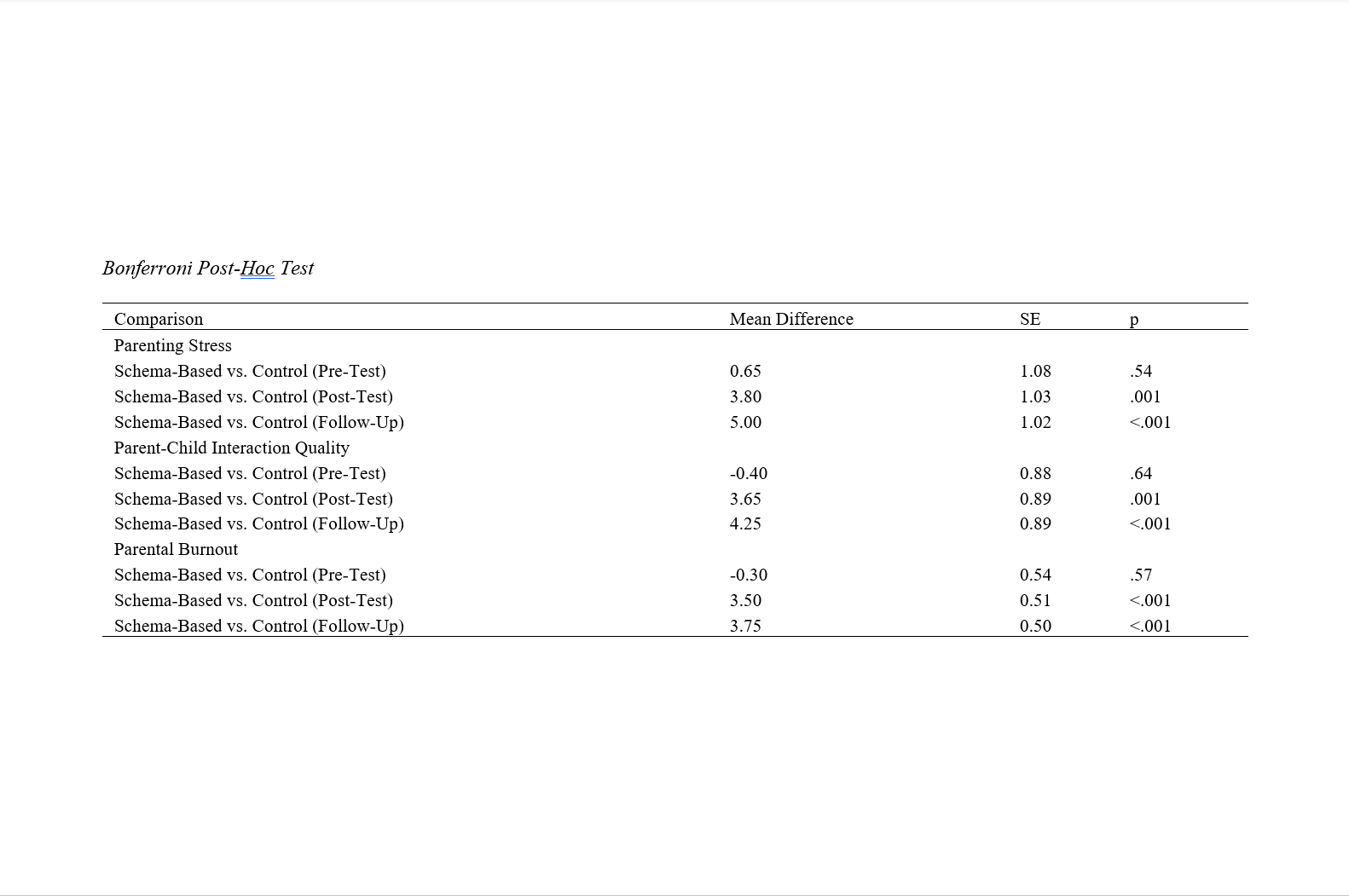The Effectiveness of Schema-Based Parenting Training on Parenting Stress, and Parent-Child Interaction Quality in Mothers of Children Aged 4 to 12 Years
Keywords:
Parenting, Schema, Stress, Parent-Child Interaction, MothersAbstract
Objective: The present study aims to determine the effectiveness of schema-based parenting training on parenting stress, and the quality of parent-child interactions among mothers of children aged 4 to 12 years.
Methods: This research is applied in nature and semi-experimental with a pre-test, post-test, and one-month follow-up design with a control group. The statistical population included mothers of children aged 4 to 12 years who visited counseling centers in District 1 of Tehran. From this population, 45 individuals were selected through convenience sampling and randomly assigned to two groups of 15 (schema-based parenting training and control group). Data were collected using the Pianta Parent-Child Interaction (1994) and the Abidin Parenting Stress Index (1984). Schema-based parenting training, which encompasses educational topics, was delivered to the mothers in 8 weekly sessions, each lasting 90 minutes. For data analysis, which involved two experimental groups and one control group across three time points, a mixed ANOVA with repeated measures was utilized, and the data were analyzed using SPSS 25 software.
Findings: The results showed that schema-based parenting training significantly affected parenting stress symptoms (F=30.383, P=0.001, η²=0.52) and the quality of parenting interactions (F=7.057, P=0.002, η²=0.201).
Conclusion: It can be concluded that schema-based parenting training effectively reduces parental stress symptoms, and the persistence of the training effect during the follow-up phase indicates the intervention's lasting impact on parental stress.
Downloads

Downloads
Additional Files
Published
Submitted
Revised
Accepted
Issue
Section
License
Copyright (c) 2024 Azadeh Valipour (Author); Pantea Jahangir (Corresponding Author); Simindokht Rezakhani (Author)

This work is licensed under a Creative Commons Attribution-NonCommercial 4.0 International License.




















